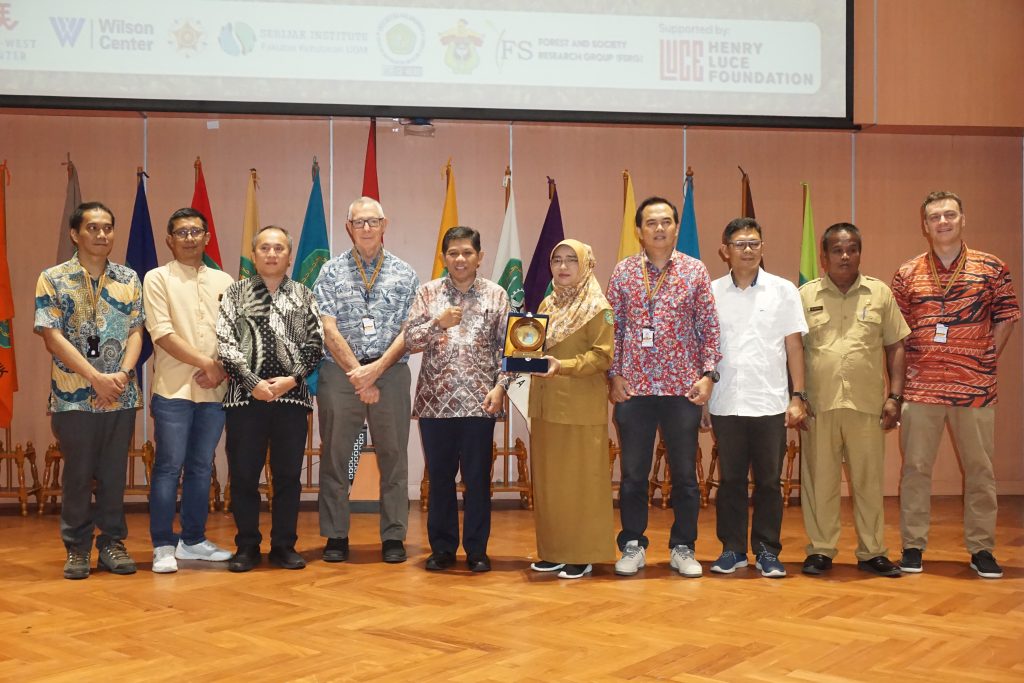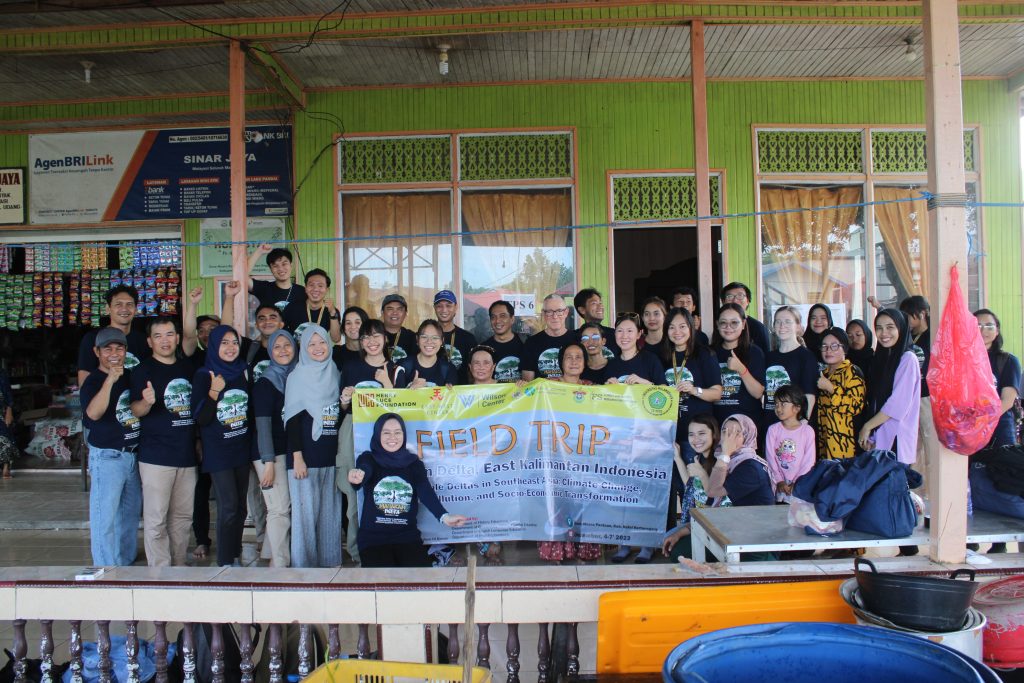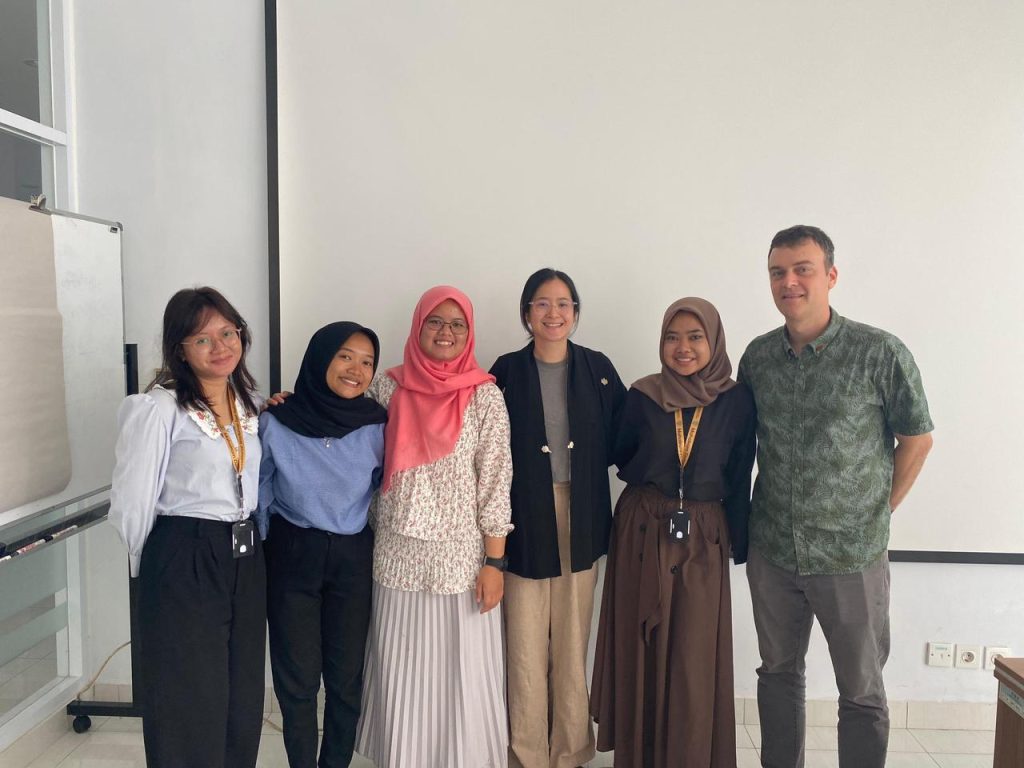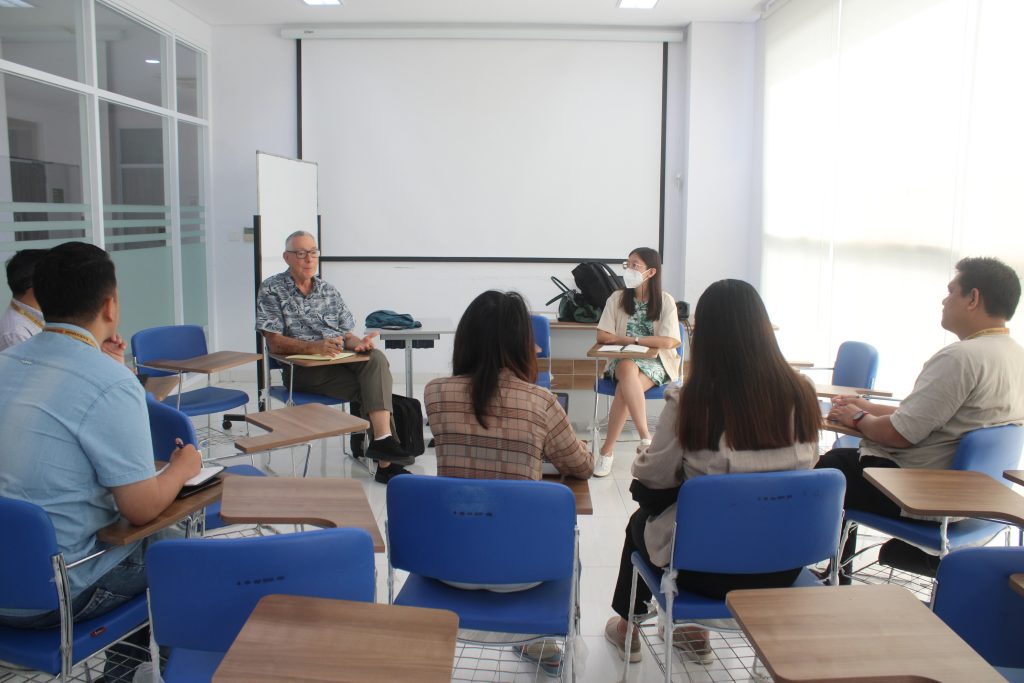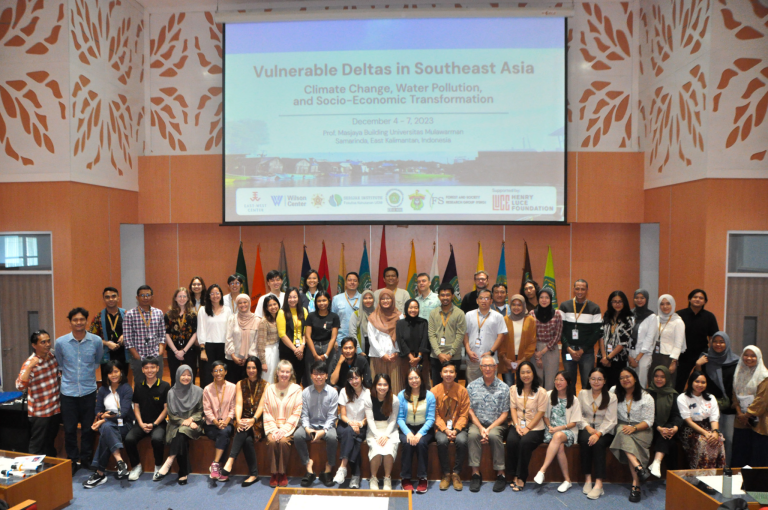
Sebijak Institute of Universitas Gadjah Mada in collaboration with the Center of History and Culture of Borneo (CE-HERO) Mulawarman University held an International Workshop entitled “Vulnerable Deltas In Southeast Asia: Climate Change, Water Pollution, and Socio-Economic Transformation”. The workshop is a series of collaborative multi-country projects as a discourse initiative on social, economic, and climate crisis issues in the Southeast Asian delta region. The commitment runs from 2022 to 2026. The first agenda was carried out at the end of 2022 in Bangkok, in 2023 it was Indonesia’s turn to host. The activity aims to convey the development of programs and research from each country. In addition, it also aims to explore and formulate the potential for future collaboration between the institutions involved. The workshop was held from December 4 to 7, 2023 at Mulawarman University, Samarinda, East Kalimantan. A number of researchers from the United States and China participated. In addition, it also involved elements of lecturers and students from Thailand, Myanmar, Cambodia, Vietnam, and Indonesia.
First day – 4 Desember 2023
The workshop was opened with remarks from Prof. Dr. Ahmad Maryudi and the Rector of Mulawarman University. Then, each country presented the progress of each program created. Indonesia delivered the program design in the form of 11 research titles with the topics of migration, socio-economics, land use change, and history. Then, KKN Collaboration with the theme “Increasing Community Capacity in the Mahakam Delta Region to support Climate Change Adaptation and Mitigation efforts”. The team from Khon Kaen Thailand organized a training workshop for quantitative method-based research on agriculture, labor, and climate vulnerability. The Vietnamese team conducted a study on water scarcity and migration issues in the Mekong Delta. The Myamnar team conducted a study on the topic of migration of Myanmar people to Thailand through a political ecology approach. The results showed that agriculture is not reliable and investable. In addition, climate change makes it difficult for them to get rice and fish. The political turmoil in the Dawei region encouraged migrants to move to Thailand.
Second day – 5 Desember 2023
The participants were invited for a Field Trip by visiting Tani Baru Village and Muara Pantuan. The trip was carried out by bus and then continued using a speedboat for one hour by crossing the Mahakam river. The visit aimed to understand the dynamics of the local community’s socio-cultural life. Before interacting, they were provided with infographic explanations that had been compiled by the KKN Delta Mahakam team. Afterwards, participants were given space to interact by conducting short interviews with several resource persons. The issues explored concerned several elements such as government figures, education, history, MSMEs, youth, and environmental activists.
Team representatives outlined the findings obtained. This was followed by a question and answer session and reflection. Environmental and educational issues are very vulnerable and complex. The community is aware of climate change which then has an impact on their economic productivity such as the decline in the number of fish, shrimp and crabs. Especially when the dry season comes, the community has no alternative but to buy water at a very expensive price. Then, the education system is hampered by the lack of available facilities. The limited number of teachers is also a form of concern that occurs there.
Third day – 6 Desember 2023
On the third day, 14 students presented their individual research developments. These studies addressed issues of history, education, political economy and the environment. They presented their interim findings guided by a moderator and were responded to by other participants. The session was divided into three rooms with 10-15 people in each room. The senior researchers hoped that later the research results could be published through international publications.
The next session continued with the delivery of a presentation entitled “The paradox of building new ‘green’ cities in a rapidly changing climate” by Dr. Ryan Longman. The presentation highlighted the issue of IKN development from an environmental perspective. He said that the IKN project has the potential to increase forest deforestation by more than 30%, the expansion of mining land and oil palm plantations. Disaster threats such as floods and fires also have the potential to arise.
Fourth day – 7 Desember 2023
Speed dating is done by dividing 6 categories of scientific fields. These areas include research methods, scientific publications, infographics and blogs, field school or KKN, and migration field studies. Research methods by Jeff Fox and Ming Li, scientific publications by Prof. Alief, poster design by Jennifer Turner, Field School by Prof. Maryudi and Dr. Dwi Larasati, and migration field study by Thiri. The participants were given the freedom to take turns learning from each field.
In the last session, the participants reflected and evaluated together. The workshop received a positive response and impact. Differences in educational and socio-cultural backgrounds were able to produce harmony together. The participants learned to go deeper into the context of the dynamics of the delta region community. Especially for students, it can expand relationships, improve field work skills, and mentoring from experts.
The renewal scheme of the program was proposed by each country. In visionary and continuity, most of them will continue research and produce outputs in the form of journals, scientific articles, policy briefs, photo essays, and blogs. In addition, they also agreed to formulate collaborative programs such as webinars, international workshops, online courses, and training classes.

